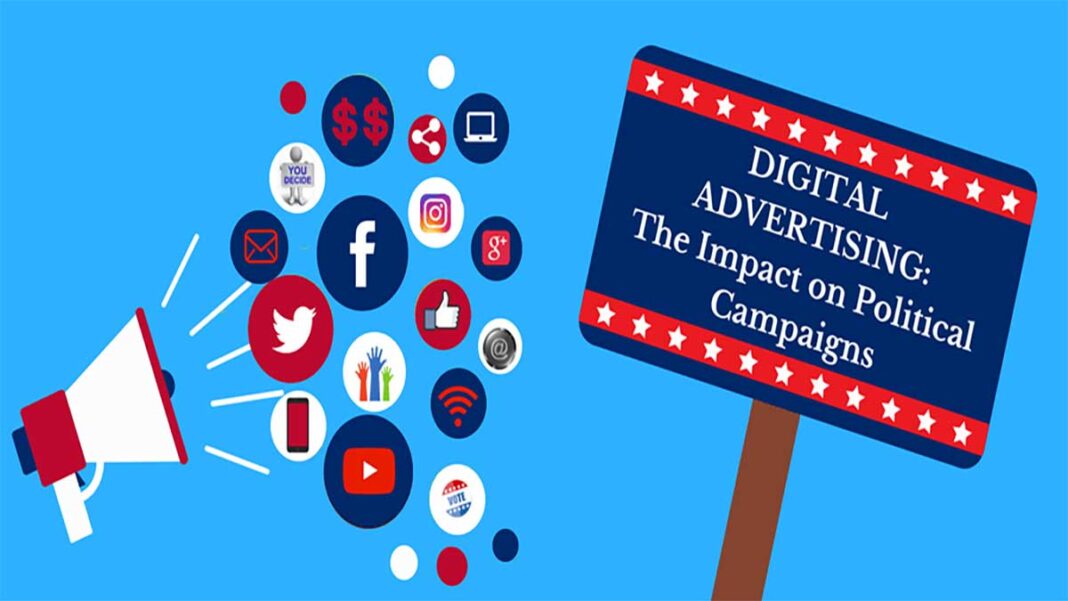Political campaigns: rallies, debates, fundraisers, going door-to-door, shaking hands, and kissing babies. All of these have been long-standing elements of political campaigns since the dawn of time.
Although the capacity to connect and engage with people remains a common thread in a politician’s efforts, the use of digital advertising, particularly social media, has significantly transformed the way campaigns are done, resulting in a new and modern standard.
In an era when political elections are becoming increasingly controversial and expensive, candidates are depending heavily on digital advertising, notably social media, to reach the right voters at the right time.
Many people are still suspicious about web advertising’s effectiveness. For most candidates, it entails developing a good election website and that’s it.
To gain a following, online campaigning must go far further than that. With each election cycle, the quality of internet campaign advertising improves. Several factors appear to be at work.
Both Joe Biden and Donald Trump prioritized social media to reach and engage a specific audience regardless of where they were on the campaign trail, making them more visible and accountable to voters and online influencers than in previous years.
Print Media Loosing Traction
Print media is failing and losing readers to internet outlets on a daily basis. Many of the younger demographics that obtain the majority of their information from the internet have abandoned network television.
Even retirees and those over the age of 65 get a lot of their information from computers. In the abstract, online advertising can be a low-cost way of reaching voters, making it appealing to low-budget local campaigns.
There is only one issue. It’s challenging to come up with online campaign strategies that everyone agrees will work. As a result, it’s also tough to get candidates to commit to it.
When something becomes popular, it captivates the curiosity of others to do the same. After the 2008 presidential election, which featured a large reliance on personal communications and contact, everyone sought to replicate Obama’s campaign strategies. In 2008, many new and infrequent voters cast ballots.
Most had become Obama fans as a result of the savvy use of internet social media. This elevated campaigns beyond the internet as the ultimate online medium.
Nano Targeting & Analytical Data
Voter identification programs that are deemed to be more accurate are being used more frequently.
Nanotargeting allows campaigns to zero in on probable voters who are interested enough in an issue to participate with the campaign via message or a website.
The number of people you can identify as voters, not the number of clicks on a website, is what matters. Then you can persuade them to vote.
Political campaigns are all about planning and getting the correct message to the right voter. Targeting is a constant component of strategy development in any kind of advertising. However, in today’s digital age, politicians and their campaigns may collect and analyze engagement data to guarantee that the proper campaign message is targeted and given to the right audience.
This can also be done at a little or no cost to the campaign. Politicians can also see and hear the emotions and opinions of citizens to policy proposals and visions. This is incredibly beneficial in terms of improving positioning signals.
Social networking platforms have also evolved as an important venue for political debates and conversations, as well as more civic-minded events in Kenya and elsewhere.
What Does the Future Hold?
Despite the fact that digital advertising has changed the face of political campaigns, most tactics will not rely primarily on online media.
Traditional modes of advertising and communication will remain important. What type of breakthroughs, on the other hand, may we expect to see on the horizon?
More virtual rallies and town hall meetings? More sophisticated internet polling? Could the day come when we vote online?
Only time will tell, but it will be interesting to see where we go from the first “modern” election.
If you have a message that people will want to adopt as their own, using the internet is a low-cost approach to communicate with them.
As the system evolves, local candidates will be able to “cherry pick” what they believe will work for them and what they are capable of doing.
The most difficult thing to overcome is that you, as a candidate, must decide to be devoted to it.

